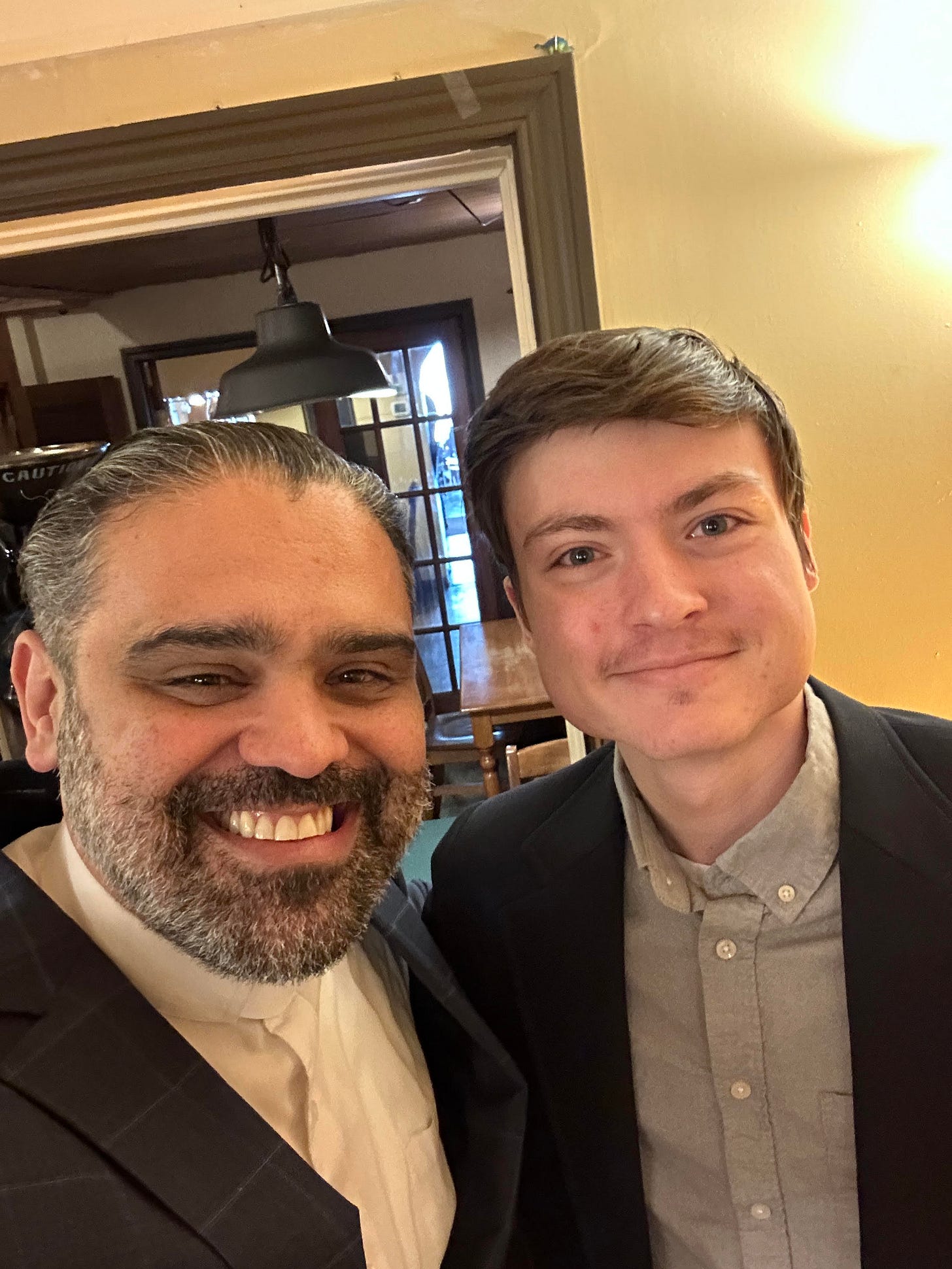Lenten Devotional (10) & Lordship
The Spirit does not waste his breath. Jesus fulfills the ministry of Jonah.
The story of Jonah is very familiar to our ears. These famous words have inspired thousands of poems and novels:
“And the Lord spake unto the fish, and it vomited out Jonah upon the dry land.”
Our famous prophet is brought through this journey of death in the belly of the beast and, through repentance, is spat out of the fish after three days. This parallels Jesus’ three days in death after the crucifixion (Matt. 12).
Unlike Jonah, our Lord was perfect, so he did not need to repent. Still, it is fairly certain that Jesus went to Sheol during those three days of bodily death and proclaimed victory from death; or, we could say, he proclaimed victory from Sheol.
The parallels are remarkable. Sheol swallows Jonah up; Sheol swallows up Jesus. Jonah repents and finds life; Jesus prays right before death that his enemies would be forgiven and find life; Jonah spends three days in Sheol; Jesus spends three days in Sheol. Jonah proclaims that salvation is of the Lord in Sheol; Jesus proclaims that salvation is of the Lord in Sheol; Jonah is spat out of Sheol after three days; Jesus is spat out of Sheol (grave) after three days.
The stories of the prophets always remind us in these remaining thirty-one days that Jesus is the greater Jonah. Death cannot keep him in the grave.
Prayer: O merciful God, you give us life when we turn to you. Like Jonah, may we seek your temple in our despair and our delight. Where can we go from your Spirit? Even in Sheol, you are there to speak life to our weary hearts. Blessed are you, Jesus, the one whom even Sheol could not hold. Amen.
Hymn of the Day: Rock Of Ages, Cleft For Me
Notations
The Prodcast interviewed me on a host of topics I think you will enjoy it:
The conversation challenges pessimistic views and encourages a hopeful vision of the future. In this conversation, Uriesou Brito discusses the importance of understanding the historical context of the Bible and how it applies to our own historical moment. He emphasizes the need to interpret biblical passages in light of the original audience and their specific circumstances. Brito also highlights the slow and steady growth of the kingdom of God throughout history, starting with the seed and leading to the establishment of happy nations and an everlasting kingdom. He addresses the role of suffering in post-millennialism and the need for a theology of martyrdom. Brito encourages believers to be actively involved in their local churches and to align their homes with the teachings of Scripture. He concludes by emphasizing the importance of a new beginning and consistency in the Christian life.
Frame notes that theologians have attempted to find a central theme in the Bible. Moltmann believed it was hope. Gutierez believed it was liberation. Brunner thought it was a personal encounter. John Frame finds these insufficient and argues that the Bible portrays the centrality of Divine Lordship (15).
Critics of Lordship oppose it for two main reasons: a) It conveys power and authority and, therefore, dominance. We need a more egalitarian theme that sustains the redemptive shifts in the Bible. These are the liberal opponents of Lordship.
b) Conversely, scholars like Darry Hart oppose it because Lordship assumes power over temporal affairs (17). Hart wishes to preserve a dichotomy between how Christ rules now and the world to come. This may be the conservative critique of Lordship rooted in a two-kingdom theology.
I subscribe to Frame’s thesis and affirm that “God’s Lordship confronts and opposes autonomy from the outset” (17). God does rule over this world as King, and he rules over the temporal nature of the State and family and the eternal nature of the Church.
In the essay “Will All Be Saved?” by Gerald McDermott (Themelios), he argues that if everyone is eventually saved, evangelism's stamina will fade. Further, universalism is an attempt to address the question of theodicy. In many ways, universalism is another variation of Open Theism, re-creating a God that avoids the wrath motif of the Old and New Testaments.
Nuntium
One of the joys of coming to Moscow, ID, is seeing old friends, co-workers, and parishioners attending New Saint Andrews College. We have a host of Providence members who now live here and are happily married, contributing to the Moscow Mood. Among my many meetings, I always make time to see my young members on this side of the country:
I will be flying back today and hoping to get some rest before the Lord’s Day worship, where I will continue my Sunday School and sermon series on III John. On Thursday, I woke up at 3 am (PT) and had meetings until 9:30 pm. It was one of the fullest days I’ve had in a long time. I will have to sit down and summarize it next week. The talk and book signing event was superb!
Lenten benedictions,
Uriesou Brito


